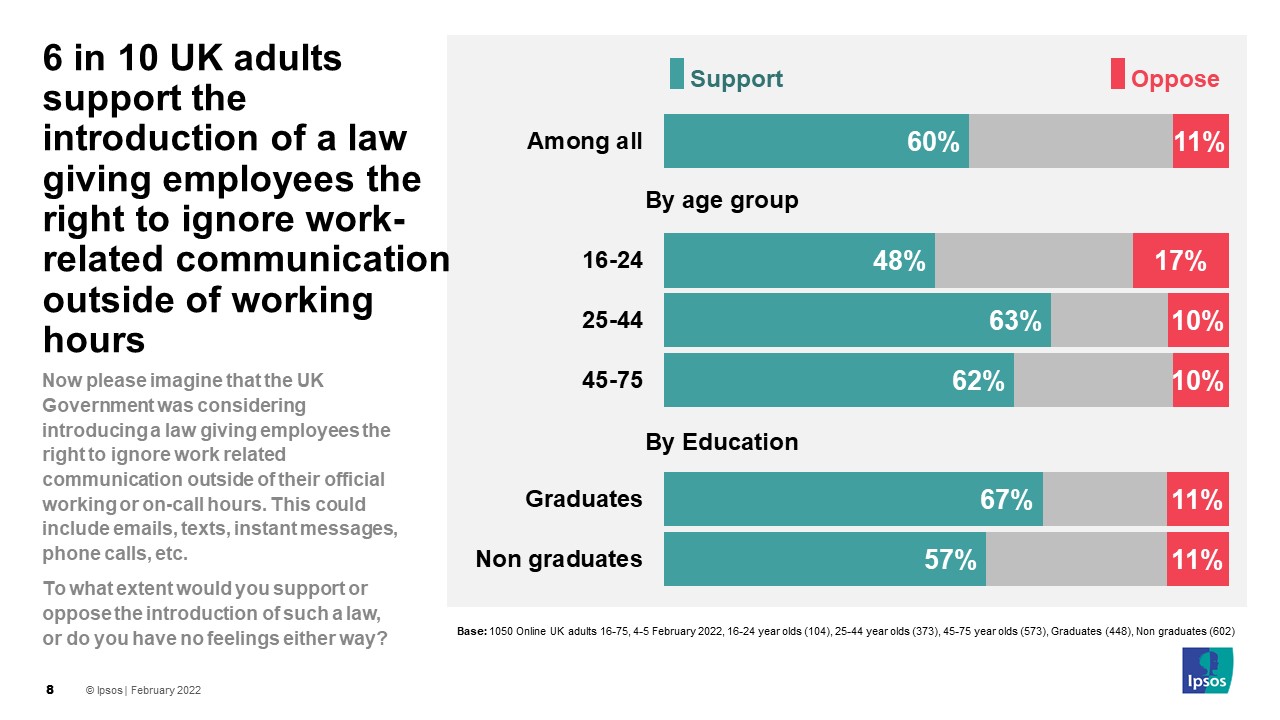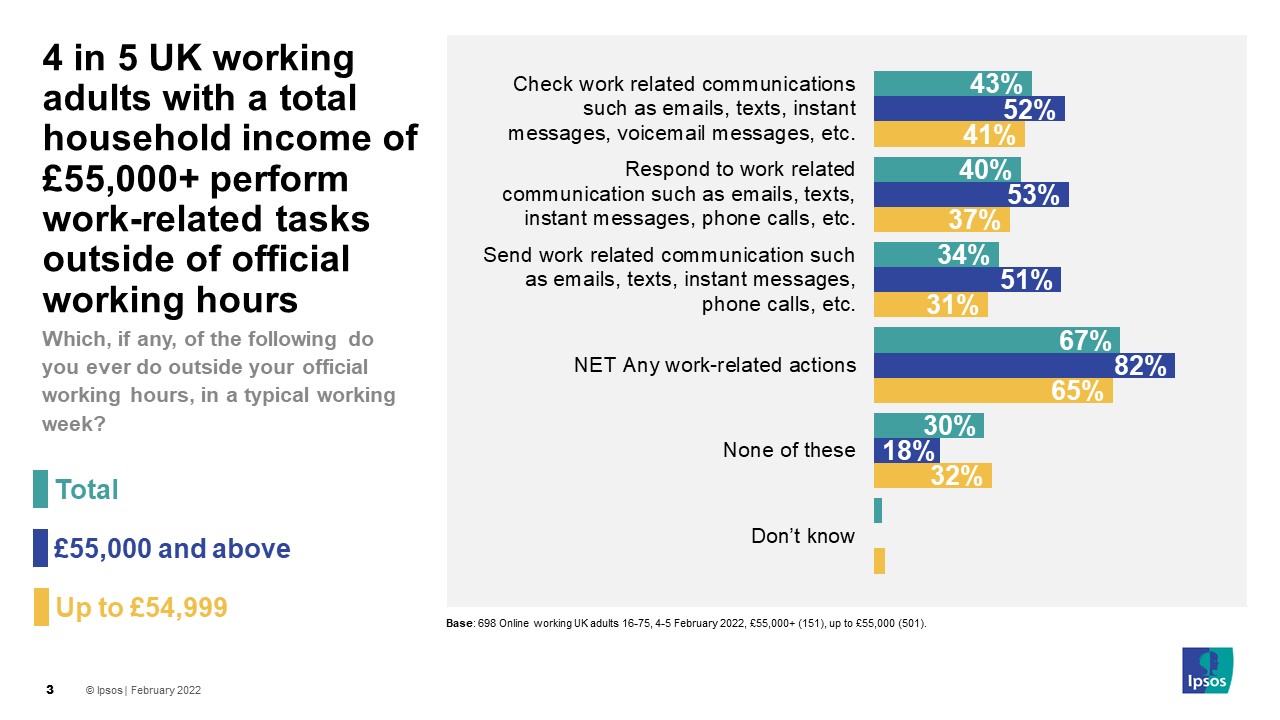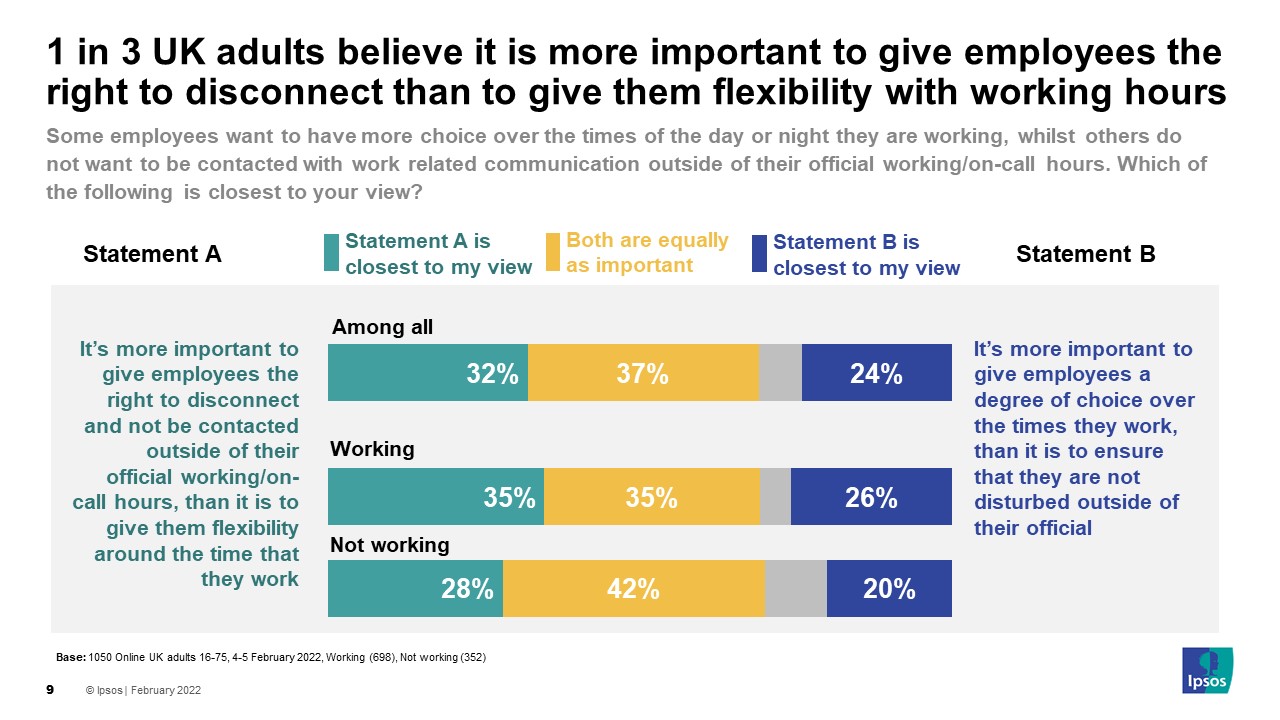6 in 10 across the UK would support a law giving employees the right to ignore work-related communications outside of working hours
New research by Ipsos shows a majority of UK adults aged 16-75 are in favour of introducing a law giving employees the right to ignore work-related communications, such as emails, texts and instant messages, outside of their official working/on-call hours. Sixty per cent would support the Government introducing such a law, including 34% who would strongly support it. Only around 1 in 10 (11%) would be against it.

There is little difference in the views of workers and non-workers, nor between Conservative and Labour 2019 voters, although graduates are more in favour than non-graduates, and 16-24 year olds are also less strongly in support.
Currently, two-thirds of UK workers say they participate in work-related communications outside of their working hours (67%). Four in 10 (43%) check work-related communications while a similar proportion (40%) reply to them. A third (34%) proactively send work-related communications. Only 3 in 10 (30%) do not communicate with work outside of their official working hours.

Those earning upwards of £55,000 a year are more likely to be checking, replying to and sending work-related communications outside of working hours, 82% say they do this compared with 65% of workers earning up to £54,999.
More than half of UK adults say it is not acceptable for employers to expect their employees to participate in work-related communications outside of official working/on-call hours. Fifty-five per cent say is is unacceptable for employers to expect their employees to check for work-related communications, while 58% say the same for responding to them and 57% for sending them. Younger people tend to be most likely to believe such expectations are acceptable – for example, 56% of 16-34 year olds believe it is acceptable for employers to expect their employees to check work-related communications out of hours, compared with 34% of 35-75 year olds.
Opinion is split as to whether priority should be given to the right to disconnect or flexible working. A third (32%) say it is more important to give employees the right to disconnect than it is to give them more flexibility around the time that they work. However, a quarter (24%) believe it’s more important to give employees a degree of choice over the times they work. But more, almost 4 in 10 (37%), say both are equally important.

Kelly Beaver, Chief Executive UK and Ireland, Ipsos, says:
The pandemic has had a huge impact on our working patterns, providing businesses and employees an opportunity to re-evaluate the way we work. For many, this has resulted in increased flexibility, but there is also the blurring of lines between work and homelife.
There is clearly support for legislation that protects the work/life balance, but will something as prescriptive as legislation actually impinge on the flexibility many have embraced over the last two years? Businesses should work with their employees to provide an environment that offers flexibility and a healthy work/life balance, so that we can all benefit from this new way of working.
Note to Editors:
- Ipsos in the UK interviewed a representative sample of 1,050 British adults aged 16-75 (including 698 who are in work). Interviews were conducted using its online omnibus between 4-5 February 2022. Data are weighted to match the profile of the population. All polls are subject to a wide range of potential sources of error.





